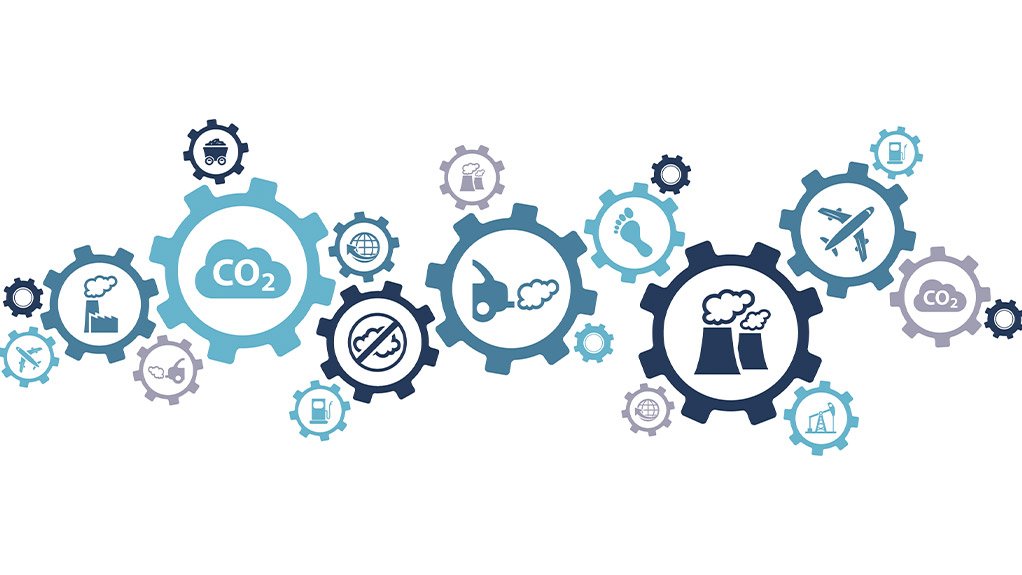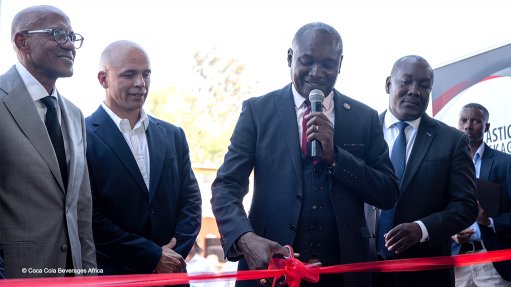Carbon credit financing solution developed to unlock energy, sustainability project investments
Impact investment company Impact Investment Group and small, medium-sized and microenterprise (SMME) manufacturing investment company Seed10X have launched a service offering for Africa to unlock carbon finance as an alternative to reduce or replace debt finance arrangements.
Seed10X has created a secure platform to register projects that offset carbon, in accordance with the global Paris Agreement on climate change.
The projects will be validated and verified by independent third-parties according to international standards and carbon credits will then be issued by Seed10X’s Africa Carbon Credit Register.
The credits can be traded to carbon financiers locally or globally, says Seed10X founder Marc Tison.
These carbon credits can also offset carbon taxes, and this, as well as supporting greater investments in energy security projects, is one of the main ways in which the solution can help to provide funding for projects, as well as enable smaller businesses and start-ups to access funding for climate-positive projects.
Tison says it is important that the quality of the carbon credits remains high, as the quality is largely proportional to the impacts made by the projects. The company issues warranties against the quality of its carbon credits, which makes it critically important for the company to verify and issue high-quality carbon credits.
"Based on the carbon credits, Impact can unlock the use of carbon finance as an alternative, cheaper source of funding compared with debt funding within three to six months of onboarding a project and, simultaneously, open grant investment in any of the 17 United Nations Sustainable Development Goals," explains Impact Investment Group chairperson Chris Hart.
Seed10X, three years ago, aimed to unlock alternative sources of funding for early-stage start-ups and SMMEs that are struggling to find funding and to enable them to source funding without having to give away shares or equity too early in their development before growing their value, says Tison.
"An alternative form of funding can change and unlock this [sustainable investments] space. In addition to unlocking carbon finance, a carbon credit solution also promises to reduce the costs of implementing large infrastructure projects, and allows large corporations to replace their reliance on [State-owned] Eskom's coal-fired energy," he notes.
Carbon finance is an investment opportunity, but at the point of departure. The solution does not cater for projects that have been completed or have been started, as the projects and their characteristics must be determined prior to the start of development, emphasises Hart.
However, the benefits are material, as carbon finance can help to reduce the capital outlay required and reduce the return on investment horizon, thereby making projects more attractive and supporting greater investment in climate-positive projects, he explains.
"Investments in projects that provide verified carbon credits is similar to property investments because there are assets underpinning the revenue stream. Further, as there are multiple collaterals to the capital deployed, the yield is enhanced and this makes such projects excellent investments," Hart adds.
Carbon credits rest on the concept of net-zero emissions. This requires that, for every molecule of greenhouse-gas (GHG) emissions put into the atmosphere, there must be a GHG molecule removed from the atmosphere.
The idea is that companies can buy carbon credits to offset their emissions – although these should ideally be difficult-to-abate emissions and not emissions that can be offset by the companies – and thereby mitigate their impact on the environment by supporting climate-positive developments, such as renewable energy projects, agricultural projects, community development or conservation projects, besides others.
However, a key difference in carbon credits from other financial instruments is that they have to be retired after being traded. They represent a given value of GHG emissions that have been eliminated from entering the atmosphere, explains Tison.
"We had a discussion with the JSE about trade in carbon credits and that trade in the credits could not follow a typical free market process. Carbon credits and associated carbon finance to support investments in climate-positive projects is more about mitigating risks to companies, such as the risks of lower revenue owing to increasing carbon taxes or revenue lost owing to climate-related tariffs imposed in key markets," he says.
The Carbon Tax Act in South Africa makes carbon credits fungible. The current tax rate is R144/t of carbon dioxide-equivalent (CO2e) emissions and, globally, all countries that are party to the Paris Agreement, which is aimed at lowering emissions by 45% by 2030 and reaching net-zero by 2050, must implement carbon prices of $20/t of CO2e emissions by 2030.
The South African Revenue Service has pegged the increase in the carbon tax at consumer price inflation plus 2% each year.
Further, the cap on untaxed emissions is not increased each year, so as to squeeze organisations to reduce emissions, or pay more taxes, Tison says.
Europe aims to promulgate legislation to impose additional levies on carbon-intensive products by 2023.
"Carbon taxes are increasing worldwide. This increases the burden that a high carbon footprint places on businesses and, therefore, increases the attractiveness of offsetting carbon through projects and, proportionally, the value of carbon credits.
“We are looking at using carbon finance as an enabler, and especially for smaller businesses, to raise capital," says Hart.
"Carbon taxes, therefore, serve as the transmission line for the climate-related value created by climate-positive projects. In South Africa, energy security and avoiding the increases in electricity tariffs provide additional upside to such investments," he adds.
The solution is particularly relevant in South Africa to mobilise capital to address its sustainability goals, especially as it can make a substantial difference in the ability of smaller businesses to raise capital, survive the challenges in the economy and employ people, Hart notes.
Carbon finance in a blended finance package enables the use of companies' taxes to contribute to energy infrastructure and reduce the impact on their balance sheets, while improving energy and price security, he says.
Comments
Press Office
Announcements
What's On
Subscribe to improve your user experience...
Option 1 (equivalent of R125 a month):
Receive a weekly copy of Creamer Media's Engineering News & Mining Weekly magazine
(print copy for those in South Africa and e-magazine for those outside of South Africa)
Receive daily email newsletters
Access to full search results
Access archive of magazine back copies
Access to Projects in Progress
Access to ONE Research Report of your choice in PDF format
Option 2 (equivalent of R375 a month):
All benefits from Option 1
PLUS
Access to Creamer Media's Research Channel Africa for ALL Research Reports, in PDF format, on various industrial and mining sectors
including Electricity; Water; Energy Transition; Hydrogen; Roads, Rail and Ports; Coal; Gold; Platinum; Battery Metals; etc.
Already a subscriber?
Forgotten your password?
Receive weekly copy of Creamer Media's Engineering News & Mining Weekly magazine (print copy for those in South Africa and e-magazine for those outside of South Africa)
➕
Recieve daily email newsletters
➕
Access to full search results
➕
Access archive of magazine back copies
➕
Access to Projects in Progress
➕
Access to ONE Research Report of your choice in PDF format
RESEARCH CHANNEL AFRICA
R4500 (equivalent of R375 a month)
SUBSCRIBEAll benefits from Option 1
➕
Access to Creamer Media's Research Channel Africa for ALL Research Reports on various industrial and mining sectors, in PDF format, including on:
Electricity
➕
Water
➕
Energy Transition
➕
Hydrogen
➕
Roads, Rail and Ports
➕
Coal
➕
Gold
➕
Platinum
➕
Battery Metals
➕
etc.
Receive all benefits from Option 1 or Option 2 delivered to numerous people at your company
➕
Multiple User names and Passwords for simultaneous log-ins
➕
Intranet integration access to all in your organisation





















